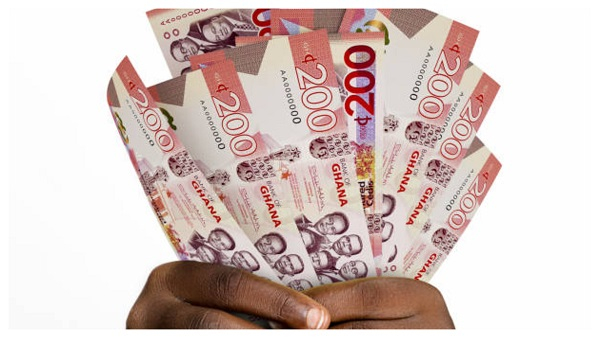Government interventions not accountable for drop in oil prices and cedi appreciation

Claims that the recent drop in oil prices and the declining value of the dollar against the Ghana Cedi are due to extraordinary economic measures by the President John Mahama administration are inaccurate. Global oil prices have been trending downward, reaching levels not seen in four years since February 2021. This analysis examines the concepts of Contango and Backwardation to understand these market dynamics.
Contango occurs when petroleum prices consistently rise, encouraging traders to buy and store excess for future profit, increasing dollar demand. Conversely, Backwardation is when prices consistently fall, leading traders to buy only for immediate sales, reducing dollar demand. During backwardation, producers may cut production to increase prices. Currently, the international oil market is in backwardation, with crude oil selling around $60 per barrel, a 25% decrease from January 2025 when prices hovered around $80 per barrel. Analysts predict a further drop to $40 per barrel.
Two primary factors contribute to this decline. First, global trade wars and tariffs create economic uncertainty, reducing oil demand. Economic slowdowns decrease oil consumption as factories close and general economic activity declines. The fear of tariff war implications causes traders to avoid buying large petroleum quantities, leading to a supply surplus and price drops. Second, OPEC+ is oversupplying the market. Despite demand concerns, OPEC+ has decided to increase oil production, driven by Saudi Arabia's effort to pressure members like Iraq and Kazakhstan to adhere to agreed quotas. President Donald Trump also urged OPEC+ to increase output to lower pump prices.
OPEC, established in 1960 by Iran, Iraq, Kuwait, Saudi Arabia, and Venezuela, aims to coordinate petroleum policies, ensure stable prices, secure supply, and provide fair returns on investment. OPEC+ was formed in September 2016, including 23 oil-exporting countries to reduce production and improve market prices. OPEC+ controls 82% of global proven oil reserves and includes major producers like Russia. The drop in Ghana's petroleum prices is due to two main reasons: the global decline in petroleum prices and the falling dollar against the cedi. Ghana imports 97% of its refined oil products, reflecting international price trends.
The price build-up for consumers includes landed costs (expenses of bringing refined products to Ghana), government taxes, and margins for Bulk Distribution Companies (BDCs) and Oil Marketing Companies (OMCs). Landed costs, mostly in US dollars, include product costs, insurance, freight, customs duties, and various fees. BDCs pay in US dollars and convert to Ghana Cedis before quoting prices to OMCs. Therefore, the exchange rate significantly impacts the final price, leading to reduced pump prices with the falling dollar.
The drop in petroleum prices in Ghana is not due to special measures by the Mahama administration. Ghana operates a price deregulation system where demand and supply determine prices. Unlike some countries, Ghana has no competitive tender process or subsidy system. The government does not fix prices, and the National Petroleum Authority (NPA) only sets price ceilings and floors to prevent monopolies. Claims that government actions triggered the falling prices are misleading.
The strong performance of the Ghana Cedi against the US Dollar is not due to specific government strategies, but rather external factors. A similar situation occurred in 2020, when the Cedi was ranked highly due to a successful Eurobond oversubscription. When the international oil market is in backwardation, commodity traders shift funds to other commodities like gold and cocoa, benefiting Ghana as a major producer and exporter. Backwardation increases demand for gold and cocoa, raising their prices significantly.
For example, as crude oil prices fell from $80 per barrel in January 2025 to $60 per barrel in May 2025, gold prices rose from $2,175 per ounce in Q4 2024 to $3,300 per ounce in May 2025, increasing Ghana's gold export revenue by $2.3 billion between January and May 2025, compared to $1.4 billion for all of 2024. The domestic gold purchase program launched by the previous administration increased Ghana's gold reserves from 8.7 tonnes in 2023 to 31.37 tonnes by January 2025. As of now, Ghana’s gold reserves are at 31.37 tonnes with a small addition since President Mahama took office.
In comparison, a price war initiated by Saudi Arabia in March 2020 led to a 65% quarterly fall in oil prices, while gold prices trended upwards due to the COVID-19 pandemic and investor demand. Ghana benefits from high gold and cocoa prices due to backwardation, a staff-level agreement with the IMF expected to disburse $370 million, a $490 million injection by the Bank of Ghana into the foreign exchange market in April 2025, and remittances from abroad. These factors contribute to an excess supply of dollars, leading to the decline in the dollar's value against the Ghana Cedi. The disruption is caused by shifts in the commodity market, where the EU and UK are not producers of gold or cocoa, and the Euro and Pound are also seeking safe-haven investments.











